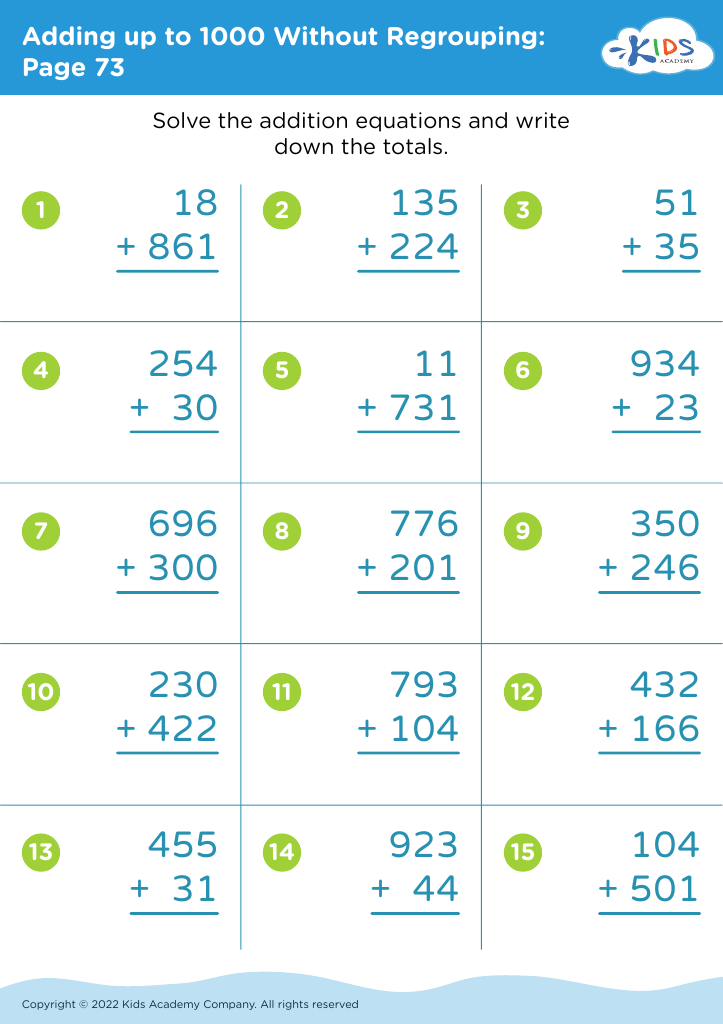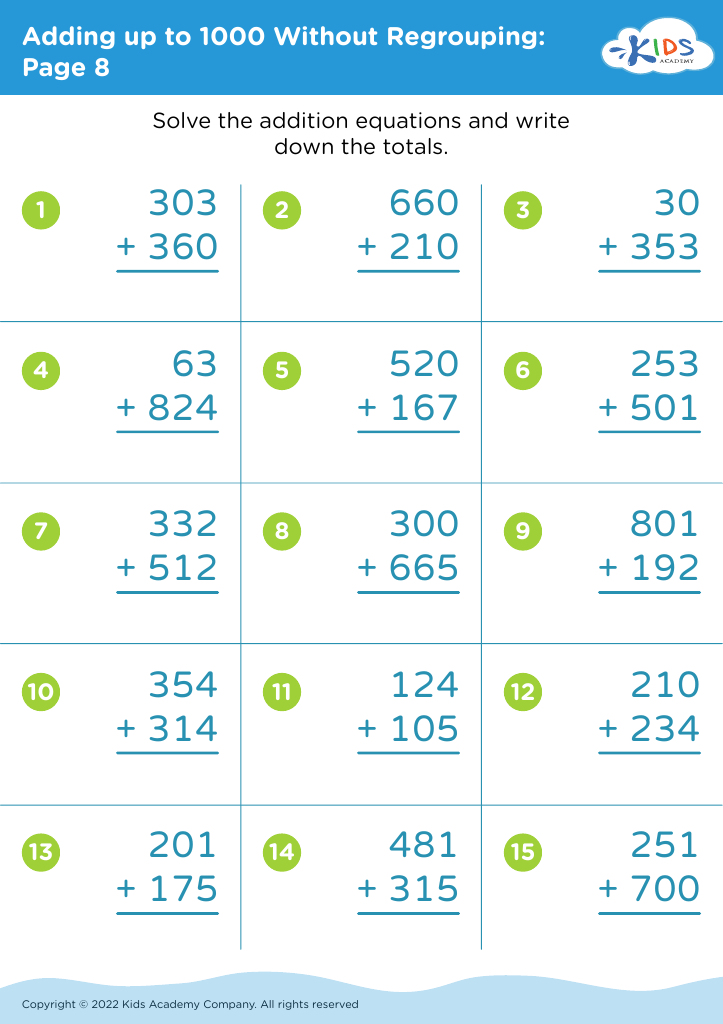Enhance comprehension Adding up to 1000 Without Regrouping Worksheets for 8-Year-Olds
4 filtered results
-
From - To
Boost your 8-year-old's math skills with our "Enhance Comprehension Adding up to 1000 Without Regrouping" worksheets! Designed to strengthen understanding and mastery, these engaging resources focus on addition strategies that help children confidently add numbers without regrouping. Each worksheet offers a variety of problems that reinforce fundamental concepts, enabling kids to practice in a fun and interactive way. By working through these exercises, children will build their problem-solving skills and develop a strong foundation for future math success. Explore our engaging worksheets today and watch your child's confidence soar as they master addition with ease!
Enhancing comprehension of addition skills, specifically "Adding up to 1000 Without Regrouping," is essential for 8-year-olds, as it lays a strong mathematical foundation. Understanding this concept equips children with critical problem-solving skills, enabling them to tackle complex mathematical operations confidently. At this age, children's brains are highly receptive, making it the perfect time to instill these foundational skills before they encounter more advanced mathematical concepts.
Moreover, mastering addition fosters cognitive development, including memory and concentration, as children practice recalling addition facts and applying them in various contexts. This skill not only supports academic achievement but also aids in everyday tasks, like budgeting and shopping, reinforcing the relevance of mathematics in daily life.
For teachers and parents, facilitating a strong comprehension of addition sets students up for success in future math lessons, reducing anxiety around mathematics, and promoting a positive attitude toward the subject. Additionally, early mastery encourages persistence, focus, and resilience—skills that are valuable beyond the classroom. In summary, prioritizing this fundamental topic helps cultivate both intellectual and emotional growth, ensuring children can navigate their academic journey with confidence and ease.














